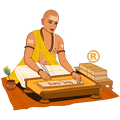
























Notes: All timings are represented in 12-hour notation in local time of Fairfield, United States with DST adjustment (if applicable).
Hours which are past midnight are suffixed with next day date. In Panchang day starts and ends with sunrise.
Holi is a religious festival celebrated by Hindus all over the world. Holi is considered as second biggest festival on Hindu calendar after Diwali. Holi is also known as festival of Colors.
Places related to life of Lord Krishna are known as Braj regions. Holi rituals in Braj regions - Mathura, Vrindavan, Gowardhan, Gokul, Nandagaon and Barsana - are the most famous one. The Lathmar Holi - the traditional Holi festivity in Barsana is world famous.
In most regions Holi festival is celebrated for two days. The first day is known as Jalanewali Holi - the day when Holi bonfire is done. This day is also known as Chhoti Holi and Holika Dahan. Holika Dahan is referred to Kama Dahanam in South India. The second day is known as Rangwali Holi - the day when people play with colored powder and colored water. Rangwali Holi which is main Holi day is also known as Dhulandi or Dhulendi (धुलण्डी). The other less popular pronunciations of Dhulandi are Dhuleti, Dhulheti.
On first day bonfires are lit after sunset at Right Holika Dahan Muhurat. Main Holi day when people play with colors is always next day of Holika Dahan or Holi bonfire. Next day in the morning people play Holi with dry and wet colors. People are more willing and comfortable to play Holi with dry colored powders which are known as Gulal. However many people feel that Holi celebrations are incomplete without wet colors. Wet color is applied on the face and is made on the spot by mixing little amount of water with dry colored powder. More enthusiastic Holi folk mix dry colored powder in full bucket of water to drench complete body in wet color.
Whole team of DrikPanchang.com wishes you Happy and Colorful Holi!